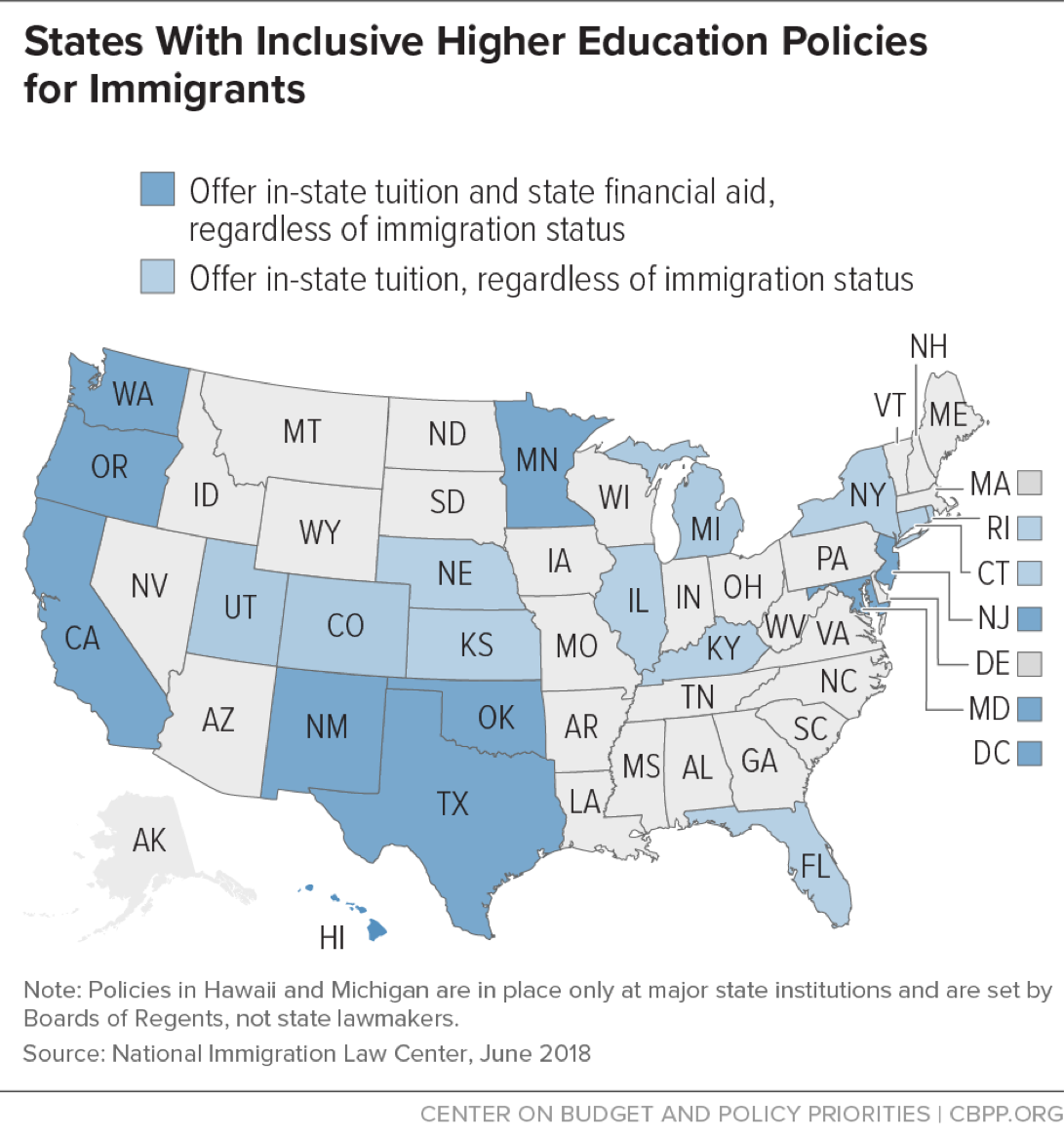BEYOND THE NUMBERS
Lawmakers in several states this spring put a college education within reach for students who are undocumented, boosting opportunity for striving young people and helping strengthen their economies over the long term. These actions show that even at a time of turmoil for federal immigration policy, states can take an inclusive approach that will benefit all residents.
For example, in Maryland and New Jersey, where eligible students who are undocumented could already pay in-state tuition rates at state colleges and universities, lawmakers voted to allow them to apply for need-based state financial aid as well. Connecticut opened access to institutional financial aid to all students who are eligible to pay in-state tuition, including those who are undocumented . And lawmakers in Oregon and Washington strengthened existing laws enabling students regardless of status to receive state financial aid or scholarships. Meanwhile, Colorado this spring allowed refugees as well as Afghans and Iraqis who received special immigrant visas to qualify for in-state tuition rates immediately.
All told, undocumented students are now eligible for in-state tuition rates in 21 states plus the District of Columbia, and have access to state financial aid in 11 states. (These counts include Hawaii and Michigan, where access to in-state rates and aid — extended by Boards of Regents rather than state lawmakers — is limited to major state universities.)
Undocumented families have lower average incomes than other families, and a college education — even at in-state tuition rates — is out of reach for many without financial assistance. Students who are undocumented don’t have access to Pell Grants and other federal aid — and federal aid is by far the largest pool of need-based financial aid available to other students.
States already guarantee all children, no matter their immigration status, a place in their K-12 education systems to help all children reach their potential and develop the educated workers of tomorrow. Giving a state’s high school graduates access to higher education at in-state tuition rates, with access to financial aid, builds on this investment. More education means higher earnings, whether for youth who are undocumented or anyone else: college graduates earn $12,000 more a year than their non-college-educated peers, on average. Higher earnings, in turn, mean more money circulating through local stores and businesses and more public revenue for state investments and services that benefit everyone, like safe roads and high-quality public schools. And states with a better educated workforce tend to have faster economic growth.

